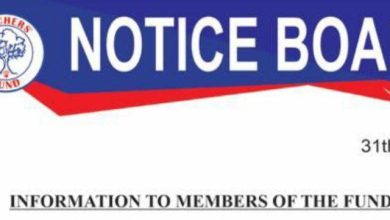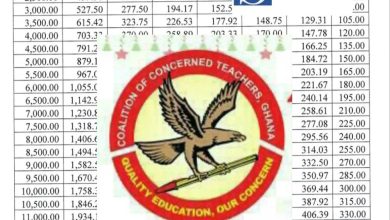Can the Teacher unions File for counter-injunction when they are served?
Can the Teacher unions File for counter-injunction when they are served?
Teachers Strike Negotiation Updates Today; We have not been served Strike still in Force
If the teacher unions are served with an injunction to call off their strike by the National labour Commission NLC, they may seek a counter-injunction to challenge or nullify the effects of the injunction. A counter-injunction from the teacher unions could play out in several ways:
Legal Arguments: The teacher unions may present legal arguments to the court to justify their strike action. This could include citing violations of labor laws, breaches of collective bargaining agreements, or unsafe working conditions as reasons for their strike. They may argue that the injunction against their strike is unjust or unlawful.
1. Violation of Collective Bargaining Rights: The Labour Act, 2003 (Act 651) of Ghana guarantees the right of workers to engage in collective bargaining with their employers. Section 79 of the Act specifically outlines the rights of workers and employers to negotiate terms and conditions of employment through collective agreements.
2. Unfair Labour Practices: Section 97 of the Labour Act, 2003 (Act 651) prohibits unfair labour practices by employers, including actions that interfere with, restrain, or coerce employees in the exercise of their rights under the Act. The Act also empowers the Labour Commission to investigate and address complaints of unfair labour practices.
3. Right to Strike:The Constitution of the Republic of Ghana, 1992, in Article 21(1)(d), guarantees the right of workers to strike as a means of defending their interests. Additionally, Section 159 of the Labour Act, 2003 (Act 651) provides for the right of workers to engage in industrial action, including strikes, subject to compliance with certain procedural requirements.
4. Public Interest: The Labour Act, 2003 (Act 651) recognizes the importance of promoting harmonious labour relations and protecting the interests of both employers and employees in the public interest. Section 3 of the Act emphasizes the need to ensure fair treatment, equal opportunities, and social justice in the workplace.
These laws provide the legal framework and support for the grounds on which the counter-injunction is sought, emphasizing the rights of workers to engage in collective bargaining, strike action, and protection from unfair labour practices, while also considering the public interest in maintaining harmonious labour relations.
Negotiation: The teacher unions might use the counter-injunction as leverage to negotiate with the national labour union or other stakeholders. They could seek to address their grievances through dialogue and negotiation rather than through legal injunctions.
Appeal Process: If the injunction against their strike is upheld, the teacher unions may appeal the decision to a higher court. They could argue that their right to strike is protected by law and that the injunction infringes upon their fundamental labor rights.
Public Relations Campaign: The teacher unions may also launch a public relations campaign to garner support for their cause and put pressure on the national labour union and government authorities. This could involve rallying teachers, parents, students, and the general public to their side.
Are Teachers Going Back to School on Tuesday……







